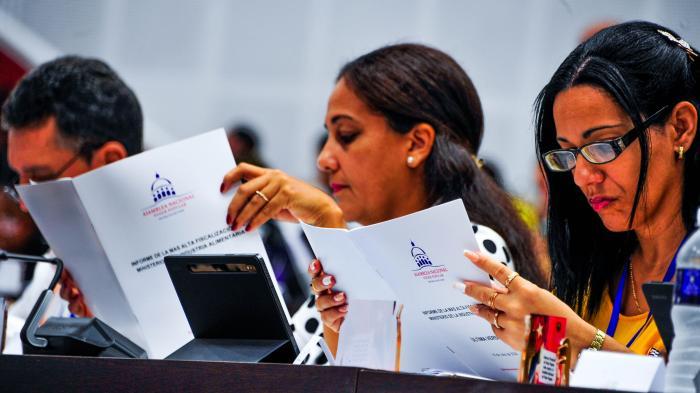
For the first time, Cuba has a Law that regulates transparency and access to public information, approved by the deputies in the 3rd Ordinary Period of Sessions of the National Assembly of People's Power (ANPP) in the X Legislature.
Eduardo Martínez Díaz, head of the Ministry of Science, Technology and Environment, explained when presenting the law that it regulates, controls and promotes the culture of transparency in public management, contributes to popular control over acts in public management, and presents coherence with other legal norms.
It also contributes to the fulfillment of the Sustainable Development Goals (SDGs) and their goals (efficient, accountable and transparent institutions), while it also establishes the necessary balance between the information that is made transparent or accessed and the protection of that which needs to be safeguarded to ensure national defense and security.
He added that, in accordance with the exchange procedures, 307 opinions were received from deputies, the population, the legislative capacity group and agencies of the Central State Administration and governments, of which some 111 were accepted in full and in part.
At the national level, 11 decree-laws were studied, and a comparative study was made of 123 laws on transparency and access to information in the world. Of the 33 countries in Latin America and the Caribbean, 28 of them have this type of legislation.
Also taken into account were the provisions of the Constitution, the Decree-Law associated with the security and protection of official information, and the policies and regulations related to the public records system, document and archive management, the government information system, the computerization of society, the protection of personal data, the simplification and integration of services and procedures, as well as the social communication of the State and the Government.
This Law, said Martinez Diaz, is essentially based on the observance of the constitutional precepts that establish the fundamental principles of the Socialist State of Law, and contributes to the effective compliance with the obligations of the State bodies and other subjects responsible for providing public information, as well as to the guarantee of the citizens' rights provided for in the Constitution.
According to the norm, the obligated subjects establish dissemination and training programs for the personnel that are part of the information, documentary and archive management structures, and all those who require it in matters of transparency and access to public information, within the scope of what is regulated.
“It is vital to explain, substantiate and convince the people of the rightness, necessity and urgency of a measure, no matter how hard it may seem,” stressed the Minister.















